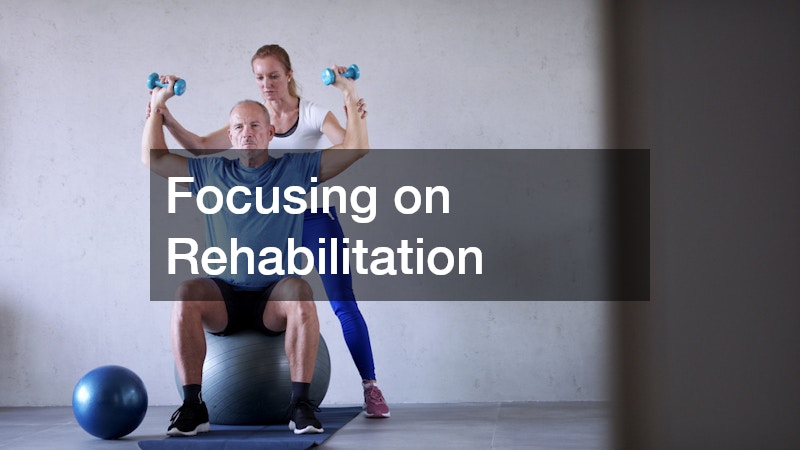In today’s fast-paced world, maintaining a healthy lifestyle has become increasingly important. Many people find themselves juggling between work, family, and personal commitments, often neglecting their health in the process. This lifestyle guide aims to provide actionable insights and resources to help individuals prioritize their well-being, leading to a more fulfilling and balanced life. Understanding the components of a healthy lifestyle—such as physical health, mental well-being, vision care, and dental hygiene—adds significant value in one’s journey toward optimal health.
Emphasizing the importance of self-care, this guide will touch upon various aspects of health, ensuring that readers are equipped with the knowledge needed to make informed decisions. By adopting healthy habits and addressing physical and mental health issues proactively, individuals can prevent more severe health problems and improve their quality of life. Each section will delve into crucial aspects of health care, encompassing everything from injury treatments to regular dentist visits, ensuring a comprehensive understanding of wellness.
The importance of consulting healthcare professionals regularly cannot be overstated. Engaging in discussions about local resources reinforces the need to address health issues effectively. By taking the first step towards better health, you are investing in long-term wellness that will benefit you both now and in the future.
Treating Injuries and Pain

One of the most critical components of a healthy lifestyle is understanding the significance of treating injuries and managing pain promptly. Many individuals avoid seeking treatment, believing they can “tough it out,” but this approach can lead to chronic issues. Utilizing local PRP treatments is an essential aspect of this process, as it employs regenerative medicine to promote healing and reduce pain effectively.
It is vital to recognize the signs of pain and understand when to seek help. Consulting professionals for proper diagnosis and treatment ensures that injuries are not aggravated, allowing individuals to return to their regular activities without long-term repercussions. Pain management strategies, including physical therapy rehab, can also be invaluable in the recovery process, helping individuals regain strength and functionality.
Moreover, education about the types of injuries and the best practices for prevention is essential. Engaging with a lifestyle guide can shed light on exercises, stretches, and rehabilitation techniques that keep people healthy. By addressing injuries proactively, individuals can lead a more active and fulfilling life, free from the constraints of pain and discomfort.
Caring for Mental Health
Mental health is just as crucial as physical health, and understanding how to take care of it should be part of any comprehensive lifestyle guide. The stigma surrounding mental health issues often discourages individuals from seeking help, but treatment options like ketamine infusion therapy have shown promising results for various mental health conditions. This innovative approach has proven effective for individuals with treatment-resistant depression and other mood disorders, enhancing overall well-being.
Addressing mental health issues not only improves quality of life but also empowers individuals to pursue their goals and relationships effectively. Regular visits to mental health professionals and open discussions about feelings can foster a healthier mindset that enhances resilience against everyday stressors. Support from family and friend networks, combined with professional help, can create a strong foundation for mental wellness.
Integrating mental health care into your daily routine, such as mindfulness practices and therapy sessions, can dramatically improve life quality. A lifestyle guide focused on both mental and physical health reminds us that caring for our minds is as essential as caring for our bodies. Overall, prioritizing mental health leads to a harmonious, well-rounded approach to living a fulfilling life.
Maintaining Healthy Vision
Vision is a critical aspect of overall health that often goes overlooked. Regular visits to eye care services are essential for maintaining healthy vision and detecting potential issues before they escalate. As part of your lifestyle guide, it is advisable to schedule eye examinations at least once a year, particularly for individuals with vision problems or a family history of eye diseases.
Eye examinations can uncover early signs of conditions such as glaucoma, diabetic retinopathy, and macular degeneration. By addressing these issues proactively, individuals can preserve their sight and enhance their quality of life. Moreover, opting for corrective lenses or undergoing minor procedures at an early stage can dramatically improve visual acuity.
An often-forgotten aspect of vision care includes protecting your eyes from harmful UV rays and excessive screen time. Wearing sunglasses outdoors and taking regular breaks from screens can prevent digital eye strain and promote better overall eye health. Thus, incorporating eye care into your lifestyle is not just about correcting impairments but maintaining lasting visual health.
Addressing Physical Health

Physical health encompasses various aspects, from maintaining a balanced diet to engaging in regular exercise. One critical resource for enhancing physical health is physical therapy rehab, which aids in recovery from injuries and enhances mobility. This practice not only helps individuals resume their daily activities but also strengthens muscles, reduces the risk of future injuries, and improves overall physical performance.
Regular physical activity is essential for overall health and can significantly impact mental well-being. Engaging in exercises tailored to individual capabilities and needs, often guided by a physical therapist, can lead to remarkable improvements in strength and endurance. Understanding the body’s limits and focusing on gradual progression in a safe environment is key to sustainable physical health.
Notably, prioritizing physical health means addressing any underlying issues that may hinder performance. In cases where injury or chronic pain is involved, consulting a healthcare professional to initiate a treatment plan, such as physical therapy rehab, can make a considerable difference. By staying active and prioritizing physical health, individuals set a solid foundation for a vibrant lifestyle.
Following Your Doctor’s Advice
A crucial element of maintaining a healthy lifestyle is adherence to medical advice provided by healthcare professionals. Whether it’s routine check-ups or specific treatment plans, following your doctor’s orders is vital for sustained health. Engaging with a neuro rehab center can be particularly beneficial for those recovering from neurological issues, ensuring a tailored approach to rehabilitation.
Patients should feel empowered to discuss any concerns or queries arising from their medical treatment. Understanding the rationale behind prescribed treatments can enhance adherence, leading to better outcomes. Regular follow-ups and open lines of communication foster a relationship between patients and healthcare providers, allowing for adjustments to be made according to individual needs.
Developing trust in medical professionals can have far-reaching benefits for your health. Establishing a pattern of following medical advice creates a habit of proactivity regarding health management. This lifestyle guide can assist individuals in navigating the complexities of their medical needs, reinforcing the crucial connection between informed decision-making and effective health outcomes.
Cleaning Your Teeth
Oral health is often neglected in broader discussions about wellness, but it deserves equal attention. Regular visits to a local dentist for professional cleaning every six months contribute to optimal dental hygiene and prevent dental issues. Consistent care helps mitigate the risks of cavities, gum disease, and other dental complications down the road.
Incorporating daily habits such as brushing and flossing can significantly complement the work performed by dental professionals. Using fluoride toothpaste and mouthwash as part of your dental regimen protects teeth and helps maintain their strength. Additionally, educating oneself about dietary choices can enhance oral health; understanding the impact of sugary foods on teeth is vital.
Ultimately, a commitment to oral hygiene leads to confidence and overall satisfaction with one’s appearance. A healthy smile not only affects physical health but also enriches social interactions, creating positive impressions. This lifestyle guide emphasizes that dedicating time to dental care is an investment in both health and happiness.
Focusing on Rehabilitation

Rehabilitation plays a crucial role in recovery, particularly for individuals recovering from injuries or surgeries. Enrolling in a specialized rehab center can offer tailored therapeutic services designed to enhance recovery. Rehabilitation focuses on regaining strength, mobility, and functionality, ensuring individuals can resume their daily lives efficiently.
Engaging with professionals who specialize in rehabilitation assures that every aspect of recovery is addressed methodically. These centers often employ a multidisciplinary approach, combining physical therapy, occupational therapy, and psychological support to facilitate comprehensive healing. Understanding that recovery is a multifaceted process can enhance motivation and commitment.
Making rehabilitation a priority aids individuals in overcoming both physical and psychological barriers resulting from an injury or illness. The holistic attention given in a rehab center encourages patients to focus on their health and well-being. This proactive engagement can foster resilience and empower individuals to achieve their recovery goals.
Recovering Well
Recovery is a vital phase in one’s health journey, and a focus on rehabilitation therapy clinics is essential. Attending a rehabilitation therapy clinic provides the necessary infrastructure and professional guidance to facilitate effective recovery. Structured programs designed by experts can help individuals navigate the complexities of healing, preventing relapses, and reinforcing recovery.
Understanding the importance of adhering to rehabilitation plans ensures individuals maximize recovery opportunities. Engaging with peers in a supportive environment fosters a sense of community, which can be invaluable during challenging times. Sharing experiences can offer encouragement and motivation, creating a camaraderie that propels sustained healing.
Making recovery a focal part of a healthy lifestyle can lead to lasting benefits beyond just physical health. Acknowledging the emotional struggles and victories associated with healing reinforces a positive mindset. This lifestyle guide highlights the importance of prioritizing recovery as a key step in fostering resilience and ensuring long-term health.
Prioritizing Stability
Stability is a cornerstone of a healthy life, especially for those recovering from various challenges such as addiction. Engaging with addiction recovery services enables individuals to build a robust support network crucial for maintaining sobriety and mental stability. Consistency in following through with recovery programs is essential for establishing a sense of stability, leading to improved health outcomes.
Stability in one’s life allows for self-growth and exploration of new opportunities. Individuals who focus on maintaining a balanced and structured routine are more likely to cultivate healthy habits that contribute to overall well-being. Investing time and effort in enabling oneself to stay stable requires dedication and emphasis on personal growth.
Ultimately, prioritizing stability reinforces the importance of psychological and emotional health. Recognizing that challenges may arise serves as a reminder that support is essential in overcoming obstacles. This lifestyle guide emphasizes that building a stable life requires ongoing commitment and engagement with professional resources.
Tending to Vision Needs

Vision care is an integral yet sometimes overlooked component of a healthy lifestyle. Routine visits to optometrists should be a part of everyone’s health regimen, facilitating the timely identification of issues and providing corrective measures as needed. Regular eye exams and vision tests not only preserve sight but also help detect systemic health issues such as diabetes and high blood pressure.
Staying informed about one’s vision needs fosters a proactive approach to eye health. By discussing family medical history and lifestyle habits with optometrists, individuals can gain insights tailored to their specific situations. Educated choices, such as investing in quality eyewear and protective lenses, empower individuals to take charge of their visual health.
Maintaining healthy vision is not just about corrective measures; it also involves a commitment to lifestyle choices that promote eye health. A balanced diet rich in vitamins, staying hydrated, and taking breaks from screens are practical steps everyone can implement. Through a comprehensive lifestyle guide, individuals can equip themselves with the knowledge and resources needed for ongoing eye care.
Adopting a healthy lifestyle is a multi-dimensional endeavor that requires attention to various aspects of well-being. This lifestyle guide encompasses the importance of treating injuries effectively, caring for mental health, maintaining healthy vision, and following medical advice from professionals. By prioritizing rehabilitation, dental care, and addiction recovery services, individuals can work toward a stable and fulfilling life.
It is essential to integrate these various elements into daily routines, ensuring a comprehensive approach to health. Regular engagement with healthcare providers and practicing self-care strategies can significantly enhance quality of life. Ultimately, each individual has the power to steer their journey toward better health, with consistent commitment to the principles laid out in this guide.
Investing in one’s health is an ongoing journey that yields lasting results, paving the way for a more vibrant and fulfilling life. By embracing a holistic view of health encompassing physical, mental, and vision care, individuals can thrive both personally and socially. Through continuous education and awareness, everyone can enjoy the abundance of benefits that come from leading a healthy lifestyle.



